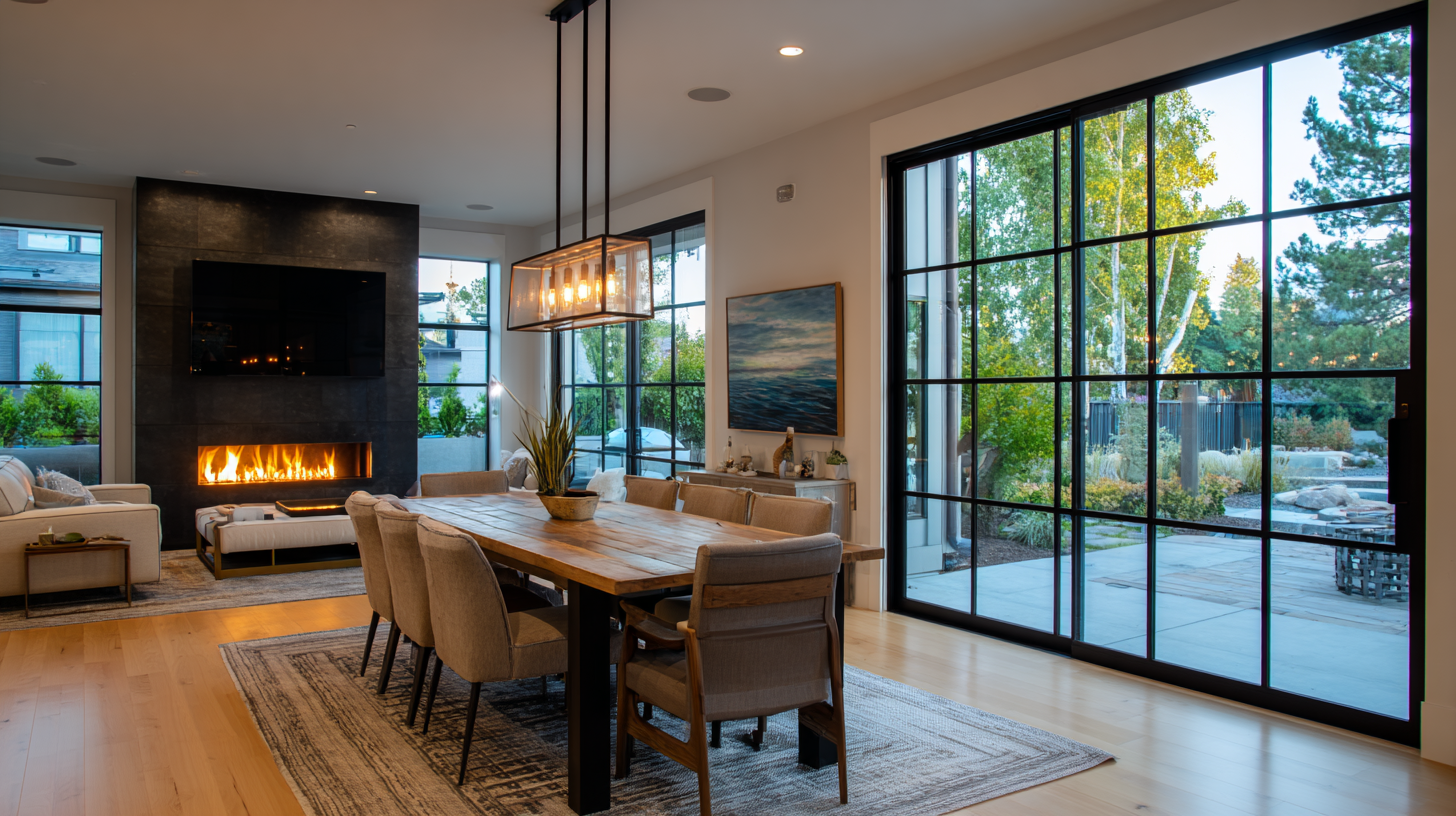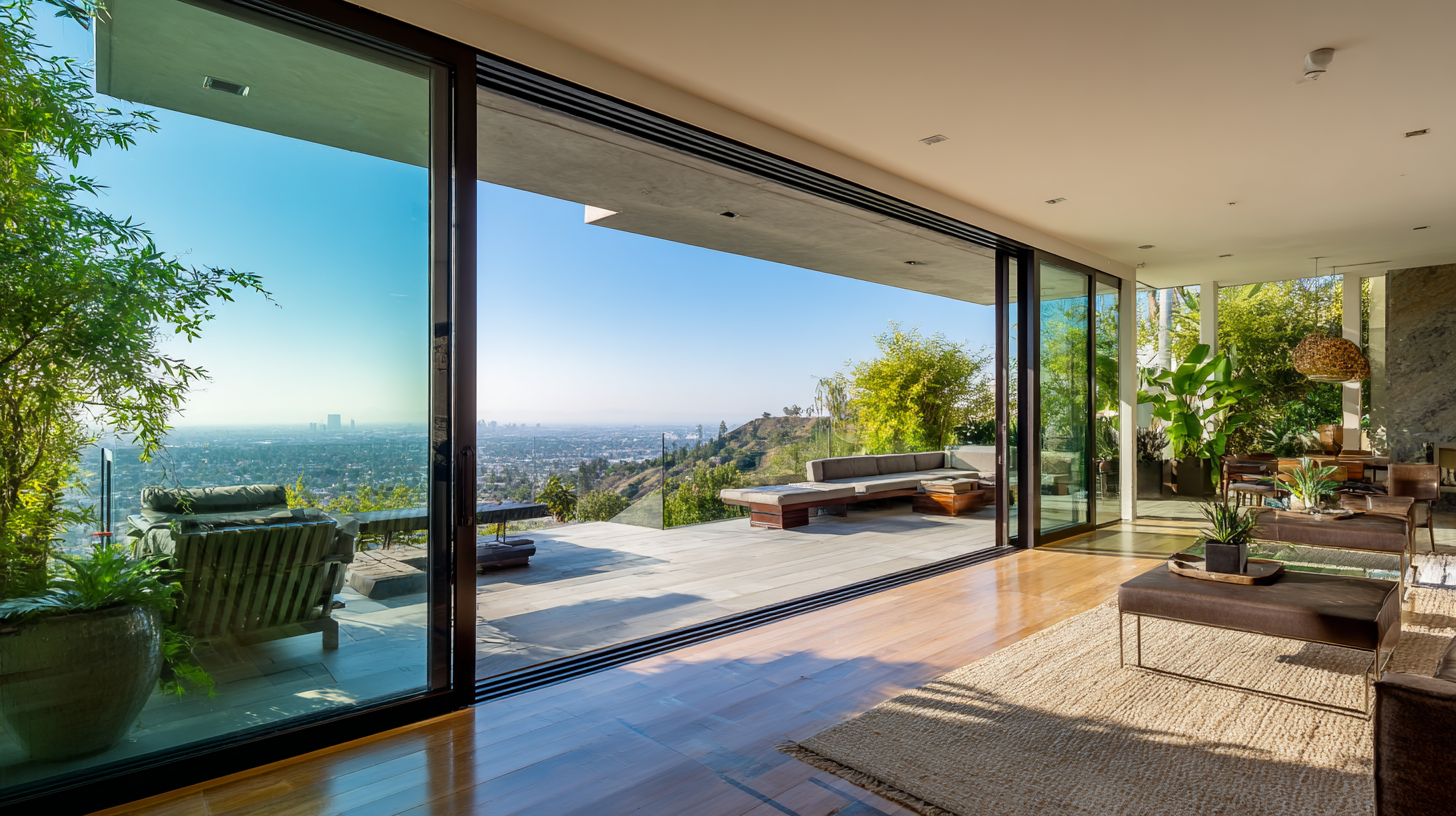Choosing the right sliding door can really boost both the functionality and look of your home. It’s kind of a big deal! Here at Guangzhou Victorydoor Co., Ltd., we totally get how tricky this decision can be. Since 2005, we've been all about doors—whether it’s trading, making them, installing, or providing after-sales service. We’ve got everything from thermal insulation rolling shutter doors to Industrial Sliding Doors, so we’re here to meet just about any need you might have. To help make things easier for you, we’ve put together this Ultimate Checklist for Choosing the Best Sliding Door for Your Home. It goes over common issues with sliding doors and lays out some key points to think about, so you’ll be well-prepared to make a smart choice. Whether your focus is on security, insulation, or how easy it is to use, having the right info will definitely level up your living space and make sure your investment holds up over time. So, let’s dive in!

Key Features to Consider When Selecting Sliding Doors for Your Home
So, when you're on the hunt for sliding doors for your home, there are a few key features you really want to keep in mind. You know, a recent report from the American Architectural Manufacturers Association found that almost 70% of homeowners really care about energy efficiency when picking their doors. Going for sliding doors with dual or triple glazing can really boost your insulation game and even help you cut down energy bills by around 30%. That’s such a win-win because it keeps your home comfy and helps save some cash in the long run!

Another thing to think about is the material of those sliding doors. According to a study by the National Association of Home Builders, vinyl sliding doors can save you about 25% on average maintenance costs compared to wooden ones. Plus, vinyl doors are super durable and can handle all sorts of weather, making them a solid choice no matter where you live. Of course, there are other materials out there too, like fiberglass and aluminum, each bringing their own perks – think lightweight strength and a sleek, modern look. So, by taking all these features into account, you're setting yourself up to pick sliding doors that really fit your needs and style.
Understanding Energy Efficiency Ratings in Sliding Doors: A Comprehensive Guide
So, when you're on the hunt for the perfect sliding door for your home, one of the big things you need to think about is energy efficiency. Did you know that according to the U.S. Department of Energy, sliding doors can actually let a lot of energy escape? If they're not properly insulated or made from quality materials, they’re just going to let that cozy heat flow right out. To make a smart choice, keep an eye out for doors with a good Energy Performance Rating (EPR). This little number tells you how well the door does at keeping the energy in. If you find doors that have an R-value of 3.5 or above, you're in a good spot for insulation, which is key to keeping your space comfy and your energy bills down.

Also, don't forget to check out the U-factor! This rate tells you how easily heat can escape through the door. The lower that U-factor is, the better the door's at keeping the heat where it belongs. A door with a U-factor of 0.30 or less is usually considered pretty energy-efficient. Plus, it’s a great idea to go for sliding doors that have dual or even triple-pane glass. This not only looks nice but adds another layer of insulation to improve thermal performance. Research from the Window and Door Manufacturers Association has shown that if you invest in energy-efficient sliding doors, you could save up to 20% on your heating and cooling bills. So, it’s a win-win—good for your wallet and the planet!
Popular Materials for Sliding Doors: Weighing Durability vs. Aesthetics
So, you're thinking about adding a sliding door to your home? That's awesome! One of the first things you’ll want to think about is what material to go with, because that really shapes how durable the door is and how it looks in your space. You've got a few solid options here: wood, fiberglass, vinyl, and aluminum—each with its own perks and charm.
Take wood, for example. It adds this amazing warmth and character to any room, but let’s be honest, you might need to put in a bit of elbow grease to keep it looking nice since it can be a bit picky with the weather. On the flip side, fiberglass gives you that lovely wood look but is way tougher and energy-efficient, which is perfect if you want style but don’t want to babysit your door.
Now, if you’re after something budget-friendly, vinyl sliding doors are super popular. They’re easy on the wallet, need hardly any upkeep, and still deliver good insulation along with plenty of color choices. And don’t forget about aluminum! It's the go-to for modern designs, bringing that sleek vibe, but just a heads-up—it might not insulate as well as some of the other materials.
When you're trying to balance durability with aesthetics, remember to think about your personal taste and the weather where you live. Whether you lean towards the classic look of wood or the streamlined effect of aluminum, the door you pick will really influence the overall feel and energy efficiency of your home.
Assessing Security Features in Sliding Doors: What Homeowners Should Know
So, when you’re picking out sliding doors for your place, one of the biggest things to think about is security. You really want to check out all the different security features to make sure your sliding doors can keep those pesky intruders at bay. Nowadays, most sliding doors come with these fancy multi-point locking systems that latch at several points around the doorframe. Trust me, that’s a game changer compared to the older stuff! Plus, you should definitely be looking for doors made of tempered glass—it’s tougher and less likely to shatter if something hits it, giving you that extra peace of mind.
And hey, let’s not overlook the locking mechanism itself. You want to go for reinforced locks, deadbolts, or even security bars to make your sliding doors even more secure. Oh, and here’s a tip: choose doors with tracks that are designed to stop people from lifting them off the frame. That really cuts down the chances of someone getting in uninvited. If you’re feeling extra cautious, think about adding a secondary security measure—like a rod or pin to stick in the track. It’ll keep that door locked tight even if the main locks aren’t engaged. So, by focusing on these security features, you can find a sliding door that not only looks great in your home but also keeps you feeling safe and sound.
Cost Analysis: Budgeting for Quality Sliding Doors vs. Cheap Alternatives
So, if you’re thinking about putting in some sliding doors at home, it’s super important to take a good look at the costs involved. I mean, I get it—some cheaper options might catch your eye at first, but trust me, splurging a bit on quality sliding doors can really save you a bundle down the road. A report from the National Association of Realtors last year said that homeowners can recoup about 70% of what they spend on new doors when they decide to sell. That just shows how crucial it is to pick materials that will actually boost your property’s value.
A couple of things to keep in mind: First, always check out the materials for those sliding doors. For example, vinyl doors usually provide better insulation and last longer than wooden ones, so they’re a really smart choice if you’re looking to save in the long run. Also, don’t forget about energy efficiency! ENERGY STAR-certified doors aren’t just great for keeping your utility bills down—they might even score you some tax credits, which is a nice bonus.
And hey, when you’re budgeting for those sliding door installations, make sure to factor in the long-term maintenance costs too. Research shows that high-quality doors need way fewer repairs and replacements compared to the cheap stuff. Plus, investing in doors that come with a solid warranty gives you a bit of peace of mind, knowing you’re covered for years to come.
Maintenance Tips to Extend the Lifespan of Your Sliding Doors
Taking care of sliding doors isn't just about looks; it's really important for making sure they last and work well. You know, a recent report from the American Architectural Manufacturers Association (AAMA) found that if you keep your sliding doors in good shape, you could actually extend their lifespan by up to 50%! How cool is that? So, what can you do? Regularly tidying up the tracks and rollers is key to keeping dirt from piling up and causing problems. AAMA recommends using a gentle detergent mixed with warm water. Just make sure to get rid of all that gunk so your doors slide like butter!
Besides taking care of the tracks, don't forget to check out the weather stripping. It might seem minor, but if it's worn out, it can cut your energy efficiency by a whopping 30%, which can really hit hard on your energy bills. Yikes! A little tip: try to give your sliding door mechanisms a squirt of silicone-based lubricant every six months to keep everything running smoothly. By following these handy tips, you’re not just making your sliding doors look good; you’re also helping them last longer and work better. So, why not give it a shot?
Ultimate Checklist for Choosing the Best Sliding Door for Your Home
FAQS
: Nearly 70% of homeowners prioritize energy efficiency when selecting sliding doors for their homes.
Choosing sliding doors with dual or triple glazing can enhance insulation, potentially reducing energy costs by up to 30%.
Vinyl sliding doors have a 25% lower average maintenance cost compared to wood doors, along with greater durability and resistance to weather elements.
Common materials include wood, fiberglass, vinyl, and aluminum, each offering unique advantages in terms of durability and aesthetics.
Fiberglass sliding doors mimic the look of wood but offer higher durability and energy efficiency, making them a practical choice for style and functionality.
Aluminum sliding doors are favored for their contemporary design and sleek appearance, although they may not provide as much insulation as other materials.
Vinyl doors require lower maintenance than wood doors, making them a more convenient option for homeowners.
The choice of material significantly influences both the durability and aesthetics of sliding doors, impacting the overall character and energy efficiency of a home.
Yes, homeowners should consider environmental conditions in their area when weighing options for material, as it affects durability and performance.
Homeowners should consider their personal style and how the sliding doors’ material and design will complement their home’s overall look.
